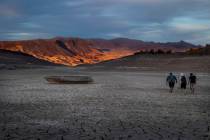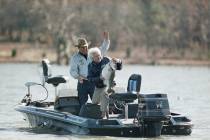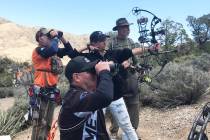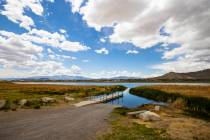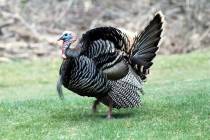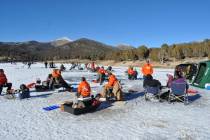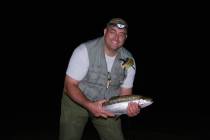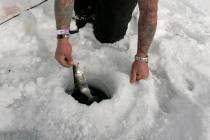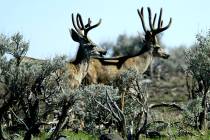Personal watercraft ban could expand
While recently reading outdoor forums online, I came across discussions about the upcoming two-stroke motor ban at Lake Mead and its expected effect on recreational boating. Unfortunately, because such restrictions often elicit strong emotional responses from freedom-loving outdoor enthusiasts, separating fact from fiction sometimes can be difficult.
The bottom line: In 1998, a group known as the Bluewater Network began pressuring the National Park Service to prohibit the use of personal watercraft throughout the national park system. Never mind that some of the lands managed by the NPS are not parks. Lake Mead, for instance, is a national recreation area.
In response to a petition by the Bluewater folks, the NPS proposed an agencywide regulation that would give individual park or recreation area leadership the ability to determine whether the use of personal watercraft was appropriate within each jurisdiction. The regulation's preamble made the case that it was a " 'conservative approach to managing PWC use' considering the resource concerns, visitor conflicts, visitor enjoyment, and visitor safety."
The Bluewater Network fired back with a lawsuit, and the NPS negotiated a settlement that requires any environmental analysis of PWC use "must, at a minimum, evaluate PWC impacts on water quality, air quality, soundscapes, wildlife, wildlife habitat, shoreline vegetation, visitor conflicts, and visitor safety." As part of the settlement, the NPS also agreed in 2003 to ban the use of PWCs powered by carbureted two-stroke motors within the Lake Mead National Recreation Area beginning on Jan. 1, 2013.
However, before you curse yourself for buying that two-stroke PWC, let's look closer at the regulation. According to the Lake Mead website, "after December 31, 2012, no one may operate a personal watercraft that does not meet the 2006 emission standards set by the EPA for the manufacturing of two-stroke engines. A person operating a personal watercraft that meets the EPA 2006 emission standards through the use of direct-injection two-stroke or four-stroke engines, or the equivalent thereof, is not subject to this prohibition and will be allowed to operate as described in this section."
In other words, if your personal watercraft has a fuel-injected two-stroke or four-stroke motor, and it meets the Environmental Protection Agency 2006 emission standards, you may operate it within the Lake Mead National Recreation Area. If it's got a carburetor, forget it.
This rule applies only to PWCs, but that might change if the NPS has its way. The 2002 Lake Management Plan calls for the ban of all two-stroke motors, regardless of vessel type, that fail to meet the 2006 EPA emission standard, and the NPS would like to see that regulation put into effect.
The park service's stated purpose for seeking this ban on carbureted two-stroke motors is "to keep your lake and national park (recreation area) clean. Lake Mead supplies drinking water for millions of people in Las Vegas."
If you bring a noncompliant PWC to Lake Mead or Lake Mohave after the ban goes into effect, you can expect to have your voyage terminated, and you will have to remove your vessel from the water. And somewhere along the line, you also can expect to receive extra paperwork that includes the address of a federal court along with a fine.
Freelance writer Doug Nielsen is a conservation educator for the Nevada Department of Wildlife. His "In the Outdoors" column, published Thursday in the Las Vegas Review-Journal, is not affiliated with or endorsed by the NDOW. Any opinions he states in his column are his own. He can be reached at intheoutdoorslv@gmail.com.








